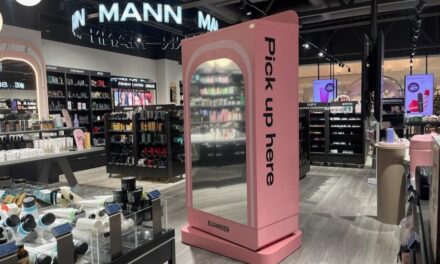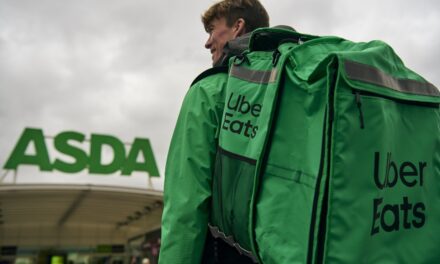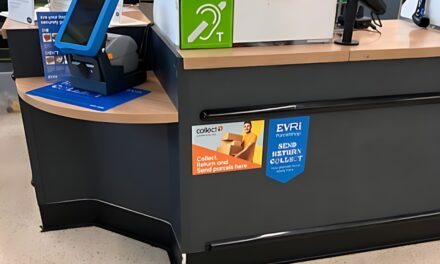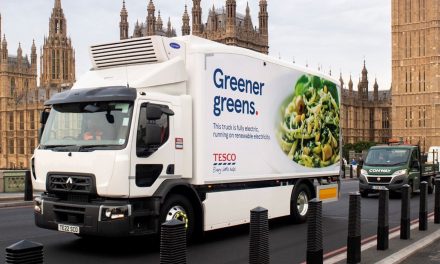
Co-op buys Somerfield for GBP 1.57bn
Co-op boss Peter Marks says the deal will provide “rocket fuel” for the firm
The Co-operative Group (Co-op), the UK’s fifth largest supermarket chain, has agreed to buy rival Somerfield.
The Co-op said the £1.57bn ($3.1bn) purchase would strengthen its position in the UK retail market.
Manchester-based Co-op, a mutual group run on behalf of its 2.5 million members, also said the deal was done on a cash-free and debt-free basis.
With more than 4,300 UK retail outlets, it employs 85,000 people. Bristol-based Somerfield has about 900 stores.
The latest figures from research firm TNS, show that in the 12 weeks to the middle of June, the Co-op had 4.4% of the UK grocery market, and Somerfield 3.7%.
Stores sell-off?
Somerfield is owned by a consortium that includes private equity firm Apex, Barclays Capital and property magnate Robert Tchenguiz.
They bought the chain for about £1.1bn three years ago.
Somerfield was put up for sale in January and the Co-op first expressed an interest in a possible purchase in April.
The Co-op may now be told by competition watchdogs to sell some of the stores it has purchased, with Morrisons, Waitrose and Iceland touted as potentially interested parties.
Co-op chief executive Peter Marks says Somerfield’s acquisition will provide “rocket fuel” for his group’s growth plans.
Mr Marks said the deal, which is subject to regulatory approval, would “create a stronger fifth player in food and a convenience store chain with unrivalled geographic reach”.
In April, the Co-op said it would spend £1.5bn to revamp its business and lift its fortunes, after 2007 profits fell 46% to £195.5m.
The firm also said then that it aimed to double its profits over the next three years.
It expanded in July 2007 when it merged with fellow mutual United Co-operatives.
‘Big four’
Neil Saunders, consulting director at Verdict Research, told the BBC: “The benefits for the Co-op of this move are that they have a larger scale, and it propels them into a different league in terms of food retailing.
“Unless you have scale in the market, it is hard to compete with the big four grocers.
“Now it can compete more effectively, but it has to be said that the big four will still remain some bit ahead.
“For consumers, it probably means a slightly better standard of store. The Co-op has traditionally been better at that than Somerfield, although Somerfield has put a lot of effort into their stores recently.”
Co-op boss Peter Marks says the deal will provide “rocket fuel” for the firm
The Co-operative Group (Co-op), the UK’s fifth largest supermarket chain, has agreed to buy rival Somerfield.
The Co-op said the £1.57bn ($3.1bn) purchase would strengthen its position in the UK retail market.
Manchester-based Co-op, a mutual group run on behalf of its 2.5 million members, also said the deal was done on a cash-free and debt-free basis.
With more than 4,300 UK retail outlets, it employs 85,000 people. Bristol-based Somerfield has about 900 stores.
The latest figures from research firm TNS, show that in the 12 weeks to the middle of June, the Co-op had 4.4% of the UK grocery market, and Somerfield 3.7%.
Stores sell-off?
Somerfield is owned by a consortium that includes private equity firm Apex, Barclays Capital and property magnate Robert Tchenguiz.
SUPERMARKET SHARE
Tesco: 31.2%
Asda: 16.8%
Sainsbury’s: 15.9%
Morrisons: 11.4%
Total Co-ops: 4.2%
Waitrose: 3.9%
Somerfield: 3.7%
Aldi: 2.9%
Lidl: 2.3%
Iceland: 1.7%
Netto: 0.6%
Farm Foods: 0.5%
Source: TNS
They bought the chain for about £1.1bn three years ago.
Somerfield was put up for sale in January and the Co-op first expressed an interest in a possible purchase in April.
The Co-op may now be told by competition watchdogs to sell some of the stores it has purchased, with Morrisons, Waitrose and Iceland touted as potentially interested parties.
Co-op chief executive Peter Marks says Somerfield’s acquisition will provide “rocket fuel” for his group’s growth plans.
Mr Marks said the deal, which is subject to regulatory approval, would “create a stronger fifth player in food and a convenience store chain with unrivalled geographic reach”.
In April, the Co-op said it would spend £1.5bn to revamp its business and lift its fortunes, after 2007 profits fell 46% to £195.5m.
The firm also said then that it aimed to double its profits over the next three years.
It expanded in July 2007 when it merged with fellow mutual United Co-operatives.
‘Big four’
Neil Saunders, consulting director at Verdict Research, told the BBC: “The benefits for the Co-op of this move are that they have a larger scale, and it propels them into a different league in terms of food retailing.
“Unless you have scale in the market, it is hard to compete with the big four grocers.
“Now it can compete more effectively, but it has to be said that the big four will still remain some bit ahead.
“For consumers, it probably means a slightly better standard of store. The Co-op has traditionally been better at that than Somerfield, although Somerfield has put a lot of effort into their stores recently.”












